
When Willie Nelson started Farm Aid in 1985, there were approximately 7 million farms spread across the country. Many had been ravaged by the catastrophic collapse of the farm economy of the early ’80s—smaller family farms just couldn’t keep up with corporate farms. Farm Aid was there providing grants to struggling farmers. Many family farms are still struggling, 33 years later.
Family farms are now facing a new financial crisis. Only 2 million farms remain in this country, and 90 percent of them are non-corporate family farms, fighting for survival. Eighty-five percent of US farm production comes from small farms, but because of policies and legislation created in the past couple of decades that have benefited large factory farms, small farmers are finding themselves in tough situations; some have been forced to decide between feeding their own families or their dairy cows. Others are forced to sell off land in order to make payments so the entire farm isn’t taken away.
And Farm Aid, along with board members Willie Nelson, John Mellencamp, Neil Young and Dave Matthews are back for yet another year to raise money to help these farms sustain themselves.
After all—as I heard repeated the entire time I was at Farm Aid 2018: “No farms, no food.”
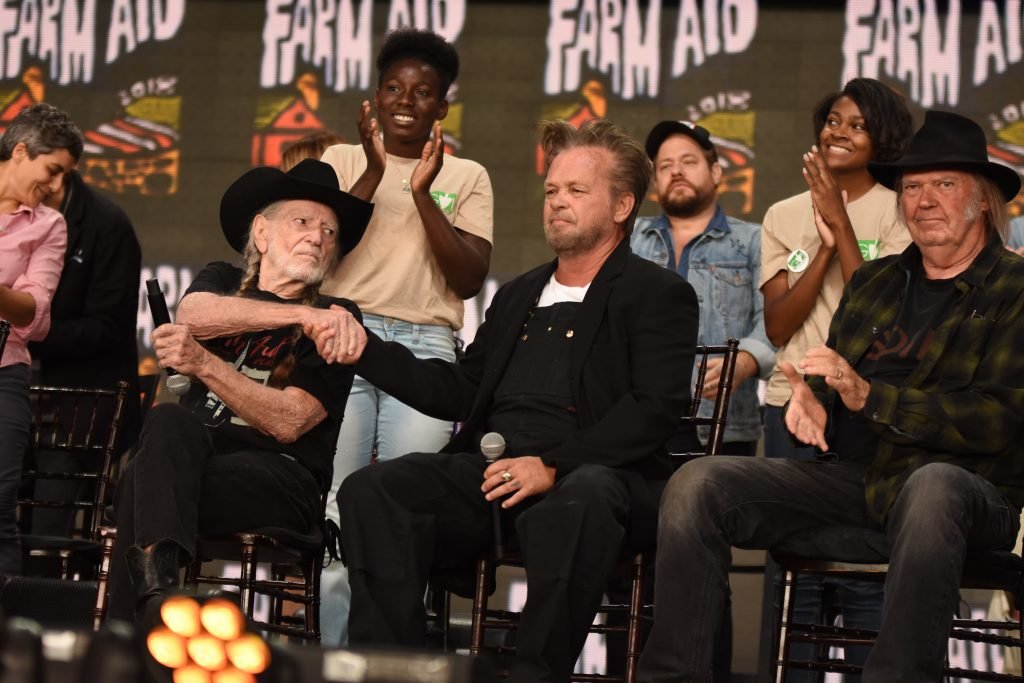
Farm Aid is a music festival unlike any I’ve ever been to before. And while the music happens to be on center stage, it’s the stories of local farmers that steals all the attention. From family farmers 10 generations deep trying to figure out how they can afford to keep going to urban farms changing the lives of their communities, each new story shared provides more insight into how important food justice and access to fresh food is.
I spoke with Alexis Martin and Delisha Ramsay, two young women who have been working at Reservoir Community Farm, in Bridgeport, CT —a city where food deserts are prevalent and local public schools struggle to provide fresh food to their students. The urban farm was a new experiences for both Alexis and Delisha, as they never saw much reason to get down digging in the dirt before. But now you can find both of them elbow deep in dirt surrounded by all sorts of bugs and bees, helping to grow healthy and fresh food for their community.
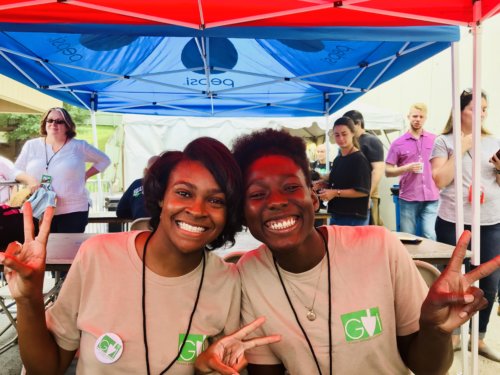
“I’ve seen the farm change over the course of time,” says Delisha. “I remember transforming the space from a strip mall to an urban farm — that we’re able to impact the community like we do, to impact the lives of young kids? It’s amazing. And I’m not done yet.”
If you have easy access to a grocery store and can afford the fresh produce available, you might not stop and think about the plight of small farmers and how — eventually — it will impact you and your nutrition. But there are many people who don’t have that luxury of time and are already in a place where access to healthy food is limited. Combine that with farmers who can no longer afford to keep going, and we are headed into a real food crisis in this country.
How You Can Help:
- Shop local. Neil Young said it best himself when he gave a charge to the audience. “Never pass a farmer’s market without going in and taking part in humanity. If you drive by a farmer’s market, you’re killing a farm.” And it’s true. By putting your money directly back into the hands of the farmers in your community, you’re ensuring that you—and those around you—continue to have access to whole, fresh food. If you don’t patronize your local farms, they will wither away.
- Support Urban Farms. Urban farms (like Reservoir Community Farm in Bridgeport), are sometimes the only way some folks have access to fresh produce. “Our tax dollars should be supporting urban farmers, so they can get it out there,” explained Dave Matthews from stage. “The people who produce the best food should be able to produce it without going hungry themselves.” The next time you’re traveling through a big city and see a farmer’s market pop up between two busy streets, stop by. Buy some apples or honey made by some rooftop bees!
- Vote. John Mellencamp spoke about the current tariffs that were supposed to bring money back to the US, but are actually making small farms struggle because they can no longer afford to ship produce internationally. “If you don’t vote, you’re gonna get shit. You’re going to eat bullshit,” he said, connecting how those in political power can influence those who provide our food. So get out and vote for candidates who make it easier for family farms to survive.
- Detox your diet. The ASPCA was at the festival with a booth promoting their week-long Factory Farm Detox, which starts today! Knowing where your food comes from, how it was raised, and what impact the farm had on the environment are all ways to ensure you’re eating responsibly and sustainably. If you eat meat and eggs from only welfare certified farms, and steer clear of products from corporate farms, you’ll avoid supporting the poor treatment of farm animals.
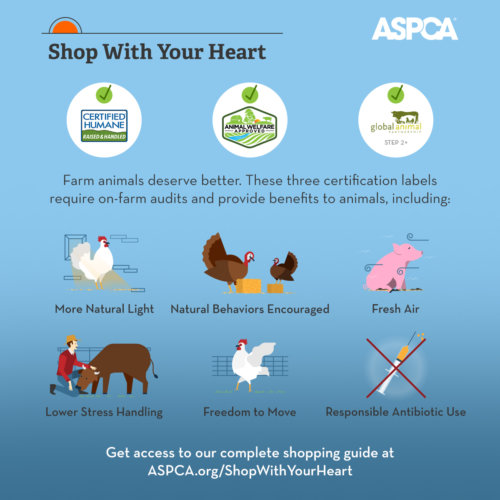


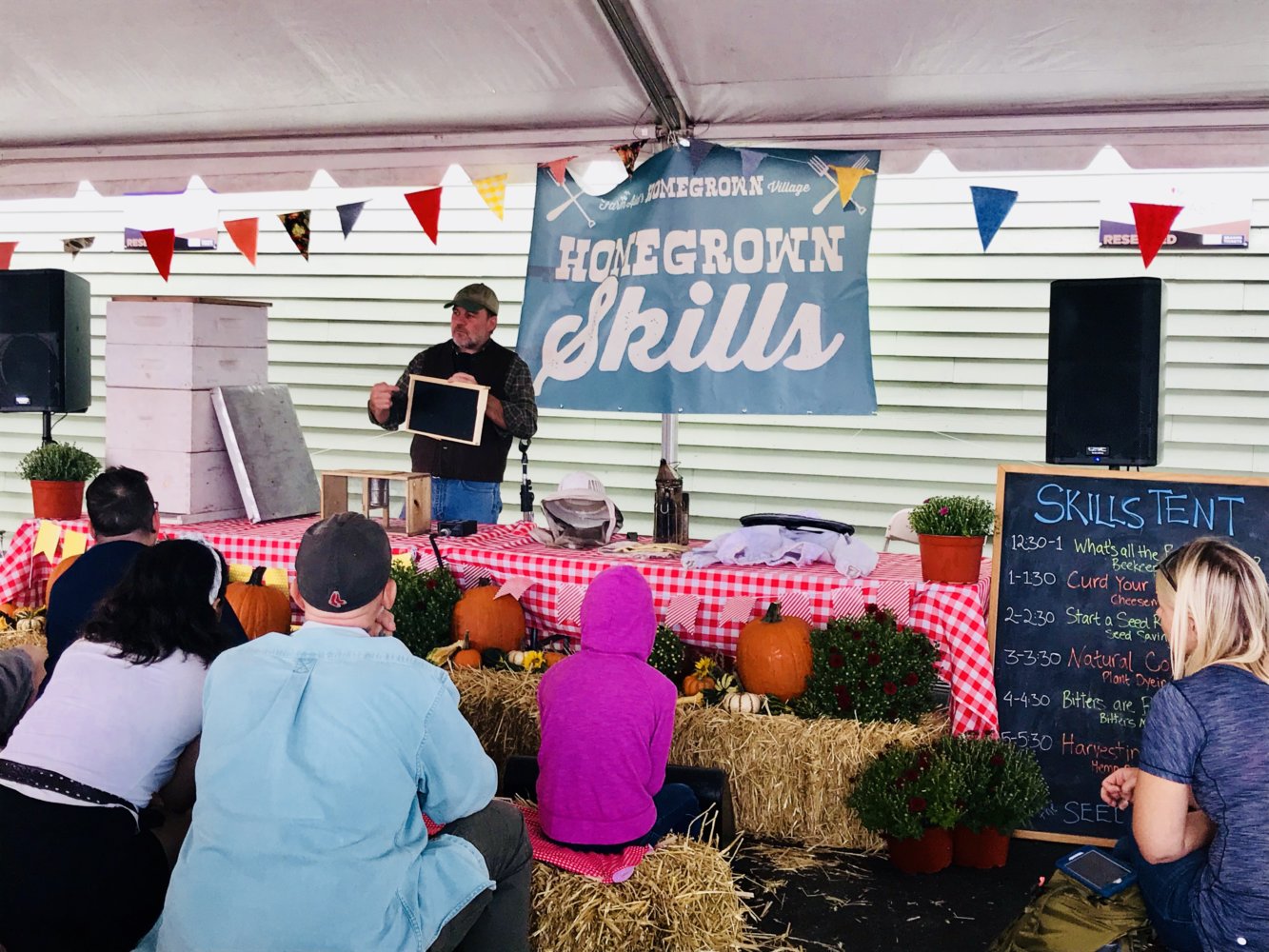
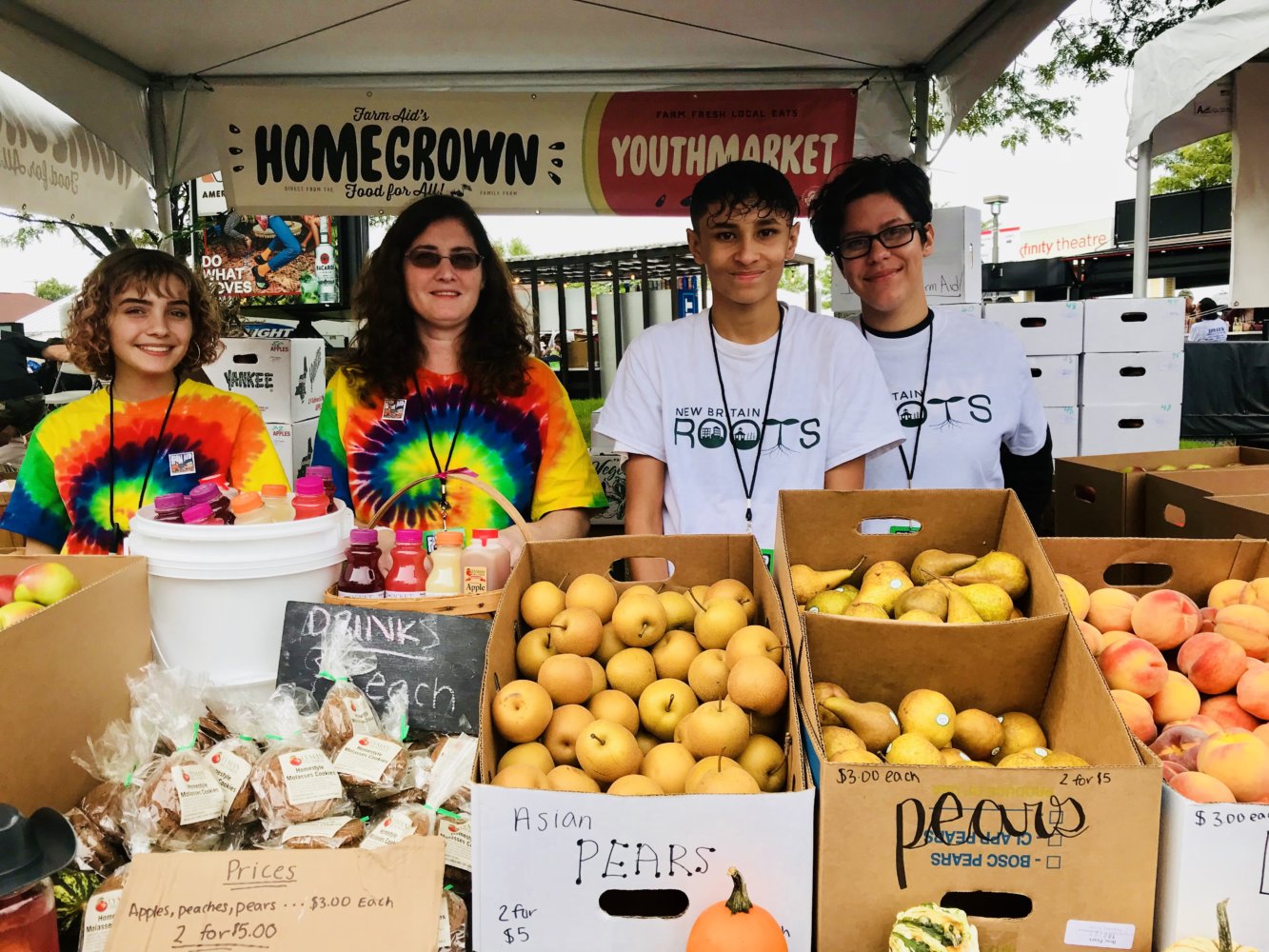
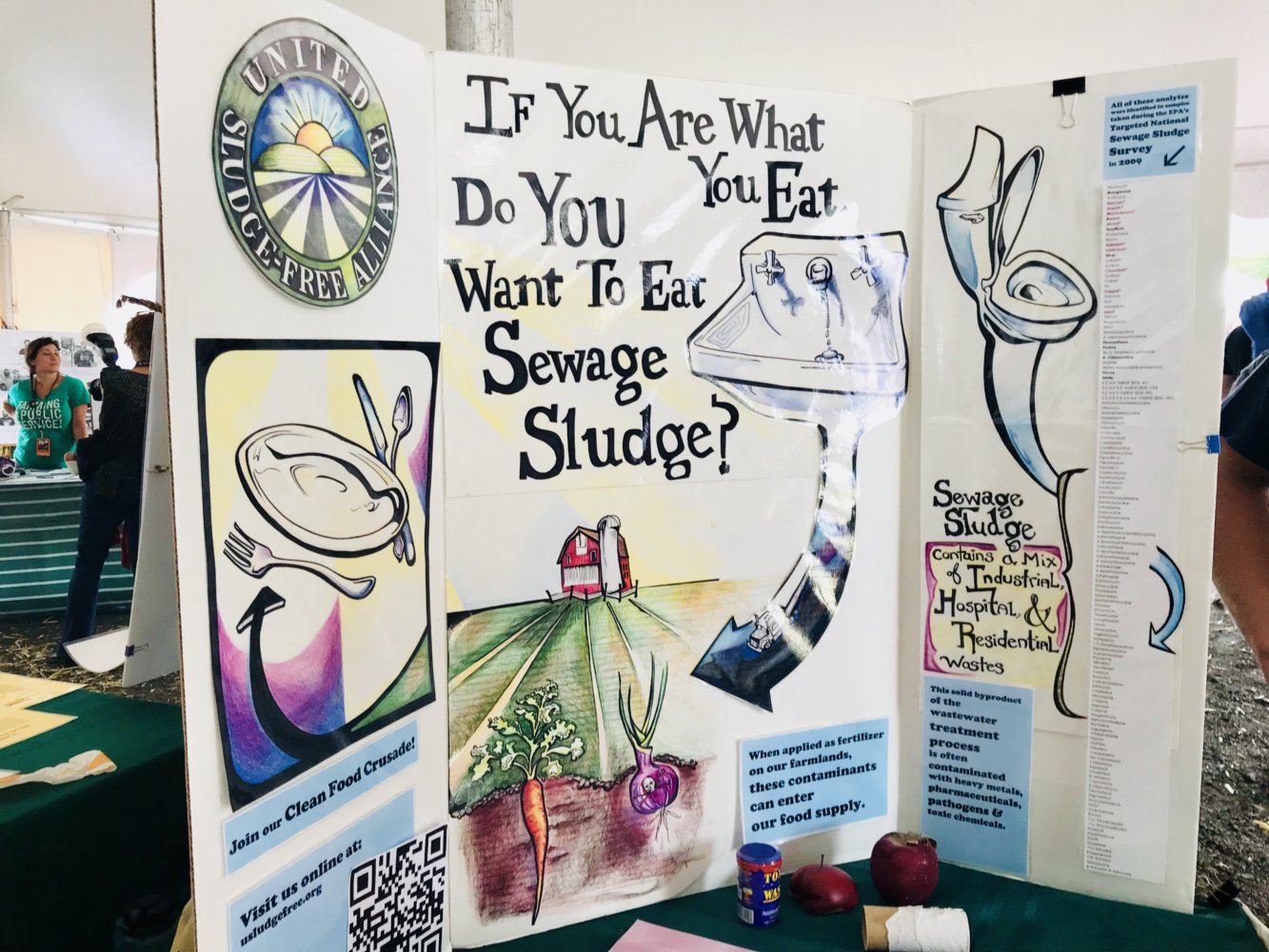
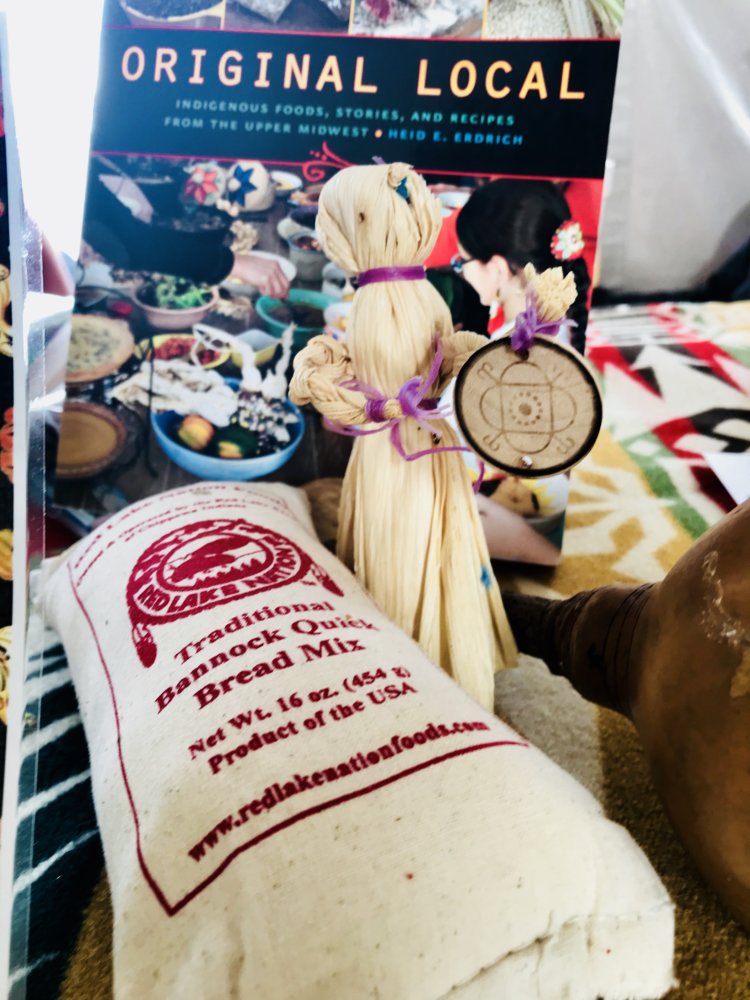
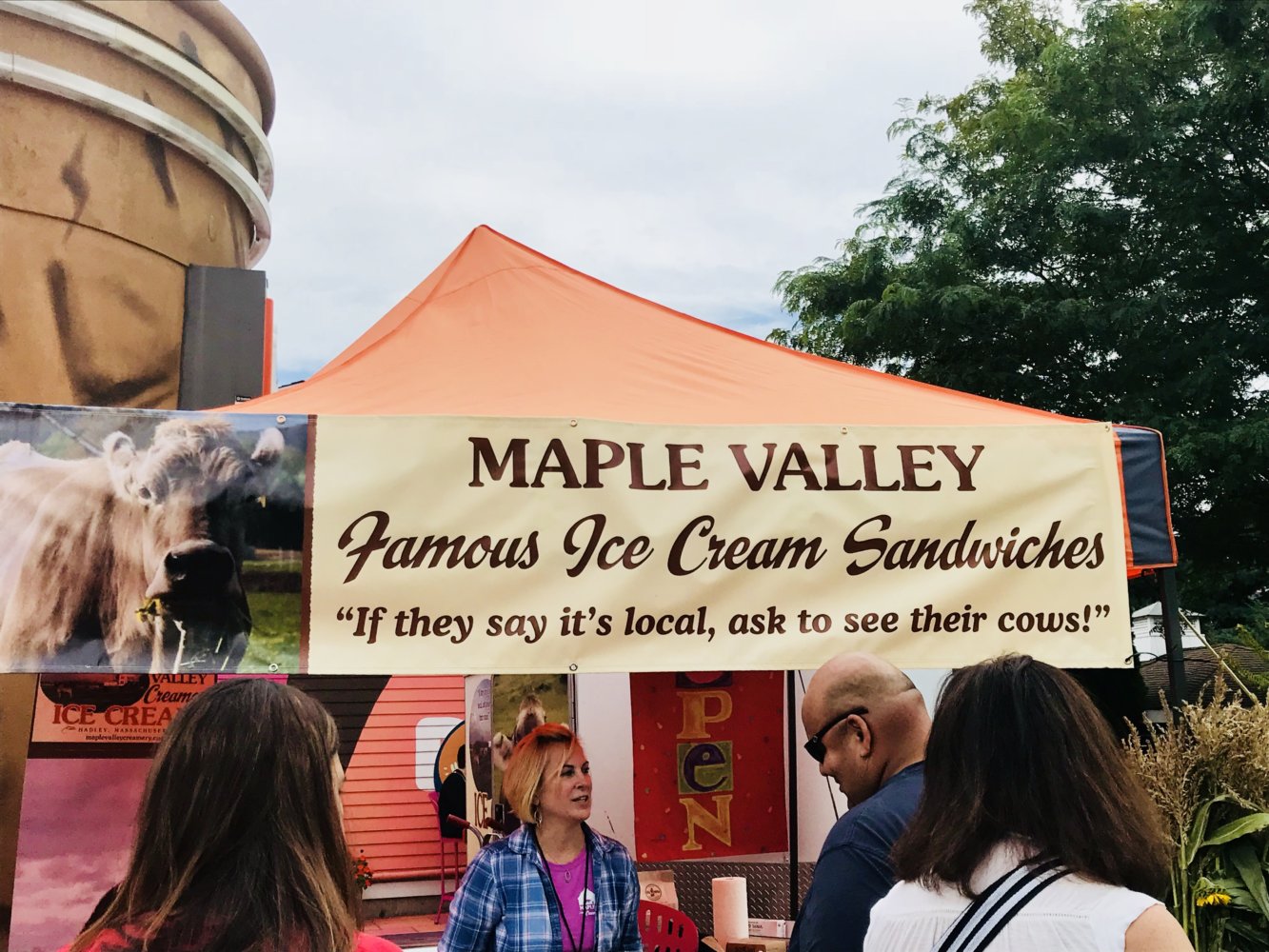
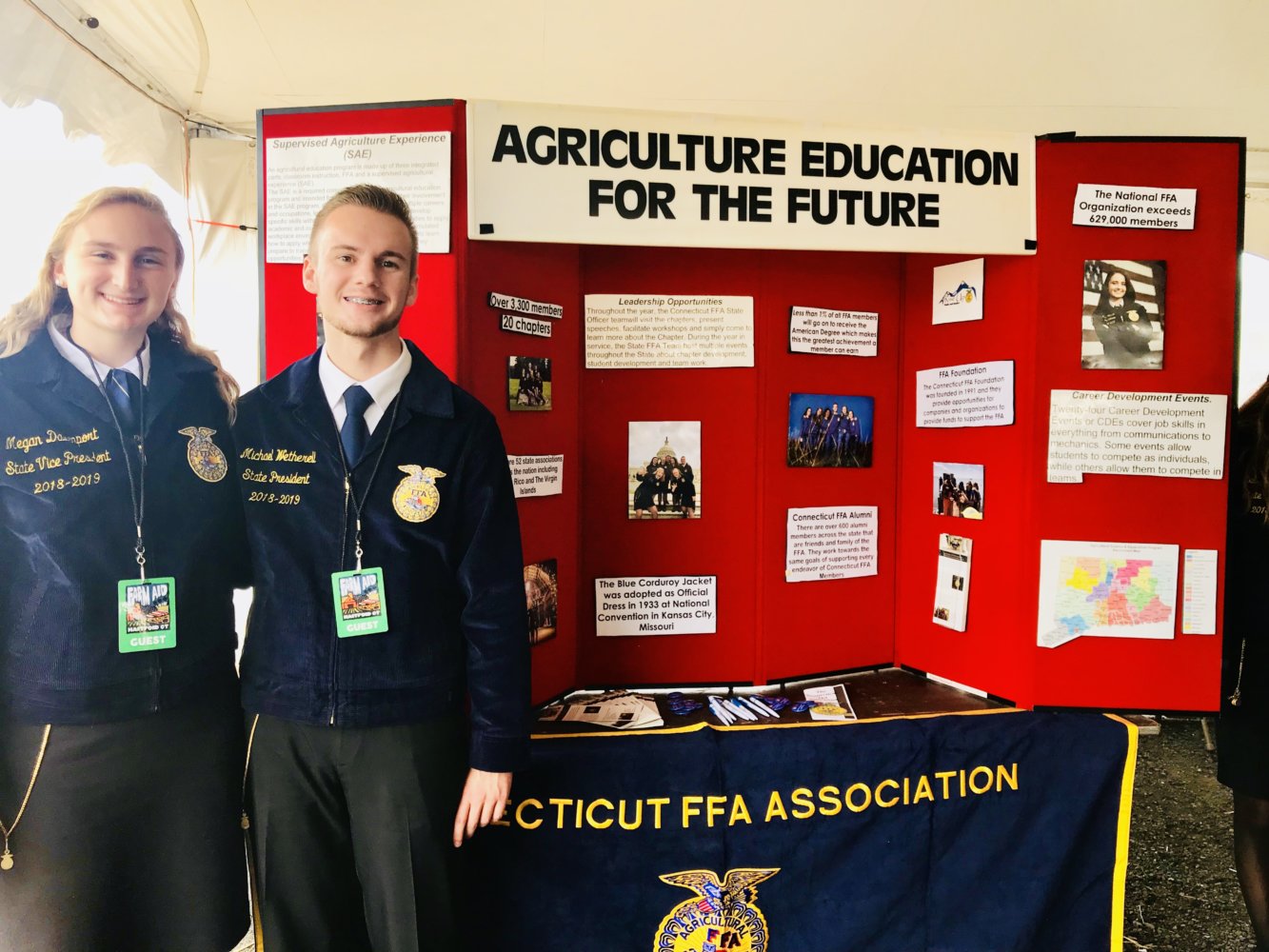
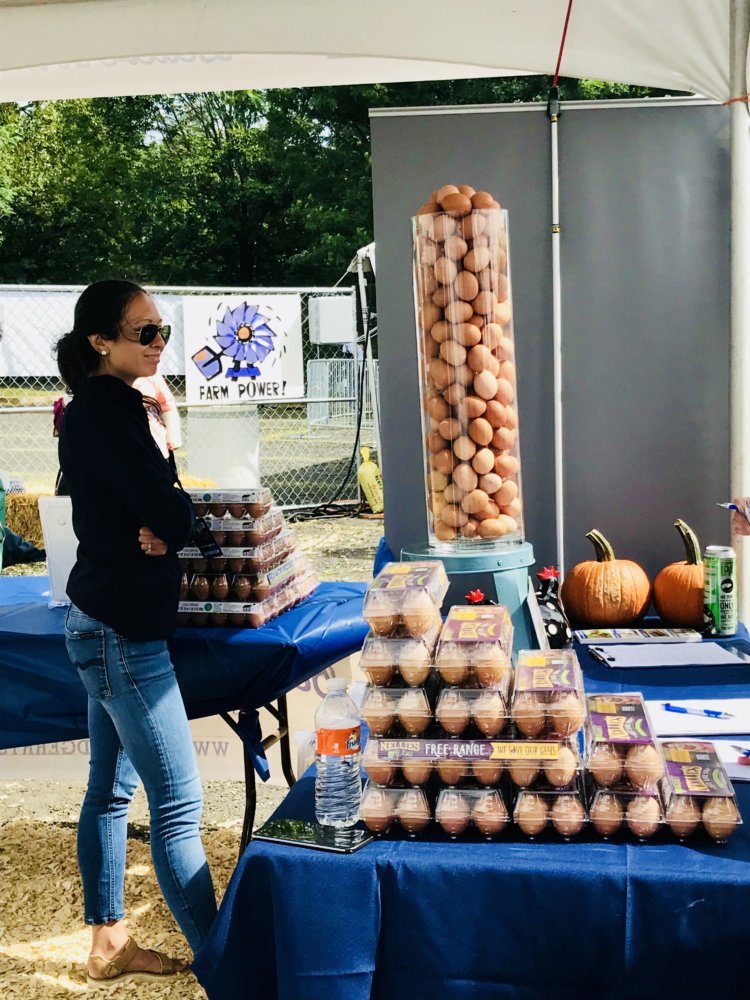
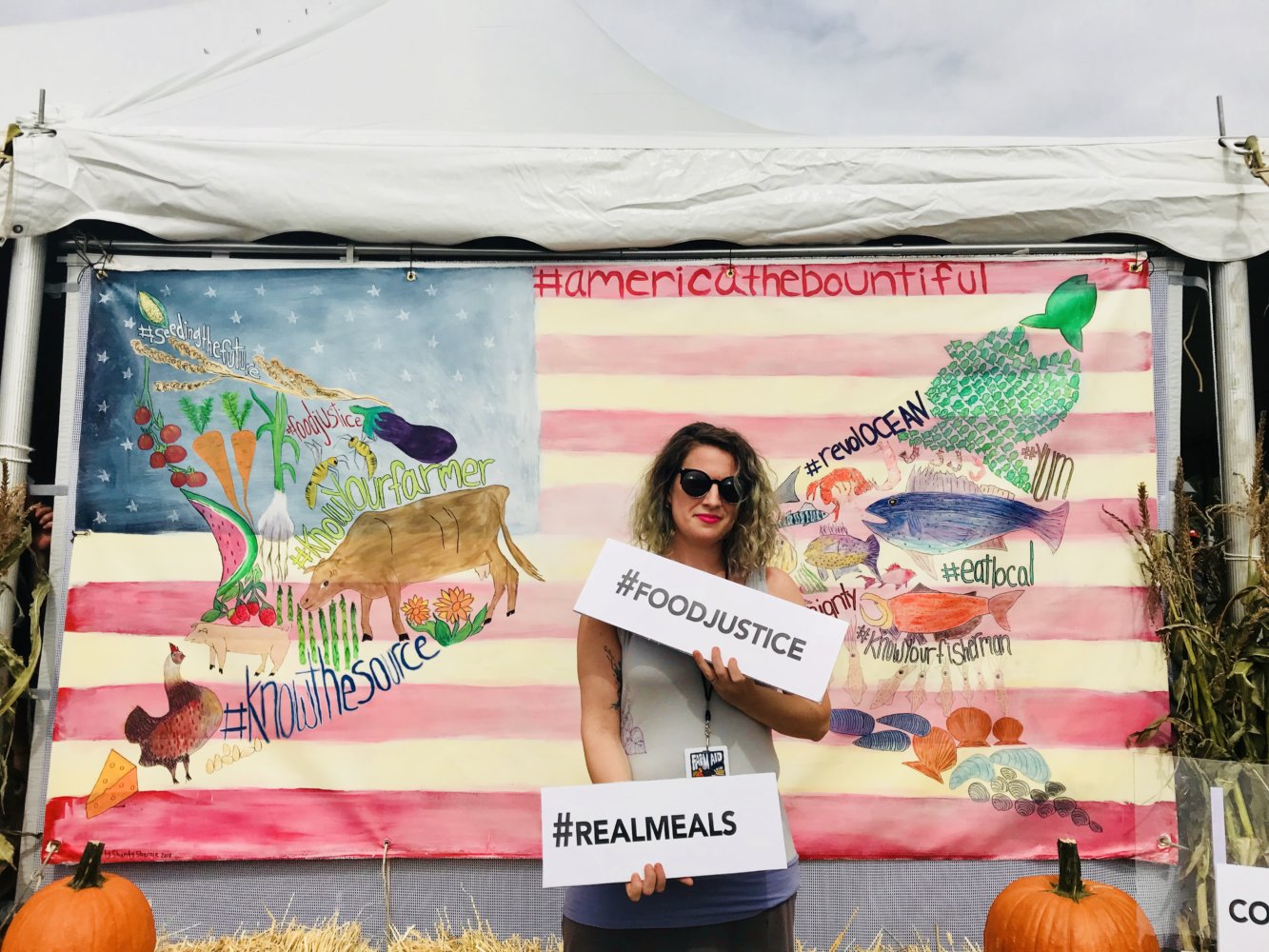
Grok Nation Comment Policy
We welcome thoughtful, grokky comments—keep your negativity and spam to yourself. Please read our Comment Policy before commenting.